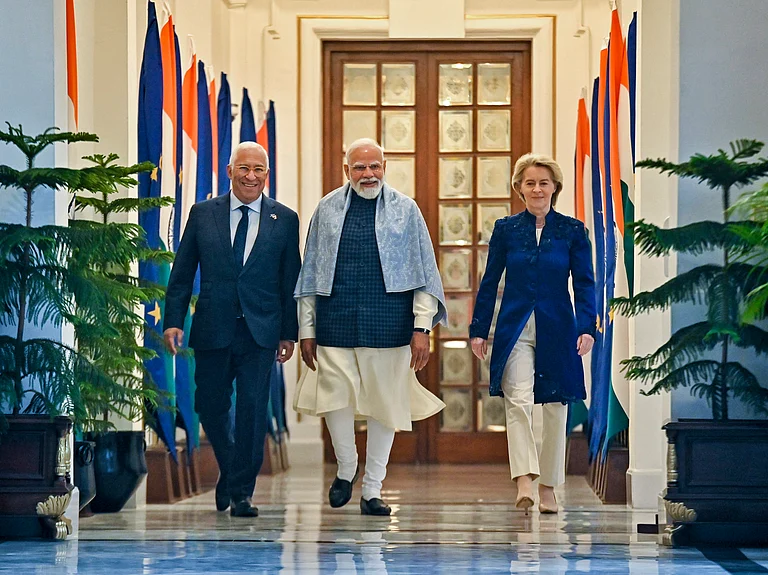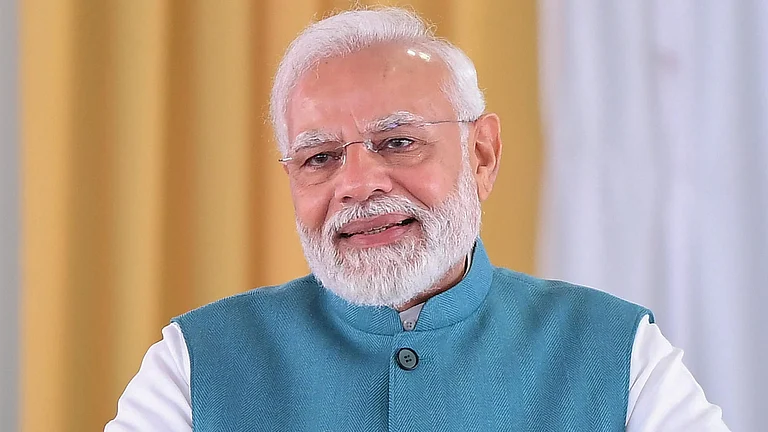After years of tensions between the United Kingdom and Ireland, the two countries have now vowed to start afresh and allowed Dublin and London to experience a "moment of reset". Relations between the UK and Ireland were hit drastically due to Britain's exit from the European Union in 2020.
With Keir Starmer's visit to Ireland, the Labour leader has become the first British prime minister to visit the Republic of Ireland in the past five years.
As per Downing Street, Starmer met with Irish Prime Minister Simon Harris to mark a "new era of co-operation and friendship".
Simon Harris was elected as Taoiseach after the abrupt resignation of Leo Varadkar. Three months later, Harris' new British counterpart was elected after a landslide victory against Rishi Sunak's Conservatives.
Relations between the UK and Ireland have been strained since 2016, when the UK decided to leave the European Union.
After leaving the regional bloc, the UK government and the EU agreed to ensure that the Irish border was free of customs posts and other checks due to the open border policy between Ireland and Northern Ireland (which is part of the UK).
Timeline Of Britian's Exit From The EU
With the increase of Eurosceptics across the EU member countries, the UK saw a sharp uptick in groups opposing aspects of the EU and the European Communities.
In 2013, Prime Minister David Cameron called for reform of the EU and promised an in-out reference on the UK's membership ahead of the 2015 general elections.
After securing a win in the 2015 elections, Cameron and the Conservative Party called for a referendum on June 23, 2016. Dur9ing this, a majority of the UK voted in favour of moving out of the European Union.
With 51.89 percent voting in favour of Brexit, Cameron announced his resignation, paving the way for Theresa May's government. After taking over as PM, May delivered a letter to Donald Tusk, the President of the European Council in 2016, to begin the two-year process of the UK's withdrawal from the EU.
From 2017 onwards, the UK and the EU began their negotiations. However, after a large part of the withdrawal agreement was ready and put before the British Parliament, Theresa May resigned as the Prime Minister.
May's resignation came after the vote for the withdrawal agreement
was defeated by 432 votes against 202.
With Boris Johnson now as PM, the Conservative leader won the 2019 snap elections. After taking over as PM, Johnson's withdrawal agreement was voted, and passed through the Parliament, formalising the UK's exit.
At 11 PM GMT on January 31, 2020, the UK formally left the European Union after 47 years.
How Did Brexit Impact UK-Ireland Ties?
Borders between Ireland and Northern Ireland have allowed free passage of people since 1923 and of goods since 1933. This open border policy was also a key pillar of the peace process which brought an end to around 30 years of violence in Northern Ireland.
However, following the UK's decision to leave the European Union in 2016, Ireland-Northern Ireland turned from an internal border to an external EU border.
Despite Britain's exit, the UK government and EU representatives wished to maintain the open border policy in Ireland due to the border's sensitive nature and the peace process's history.
After the referendum in 2016, the EU and UK reached an agreement in 2019 which allowed an open border with Ireland. This feature was added in a revised Northern Ireland Protocol within the Withdrawal agreement with the European Union.
As per this, the UK continues to maintain an open border with Ireland and in many regards, the Irish Sea would be seen as the de facto border between the EU country and non-member.
Almost five years after Britain's exit from the EU, Sir Keir Starmer made an official visit to Ireland where he called for the solidification of relations with both Ireland and the EU.
Starmer has also stated that while the UK does not wish to rejoin the EU or its single market and customs union, the newly elected Labour government will work towards renegotiating elements of a post-Brexit deal with the regional bloc.



























